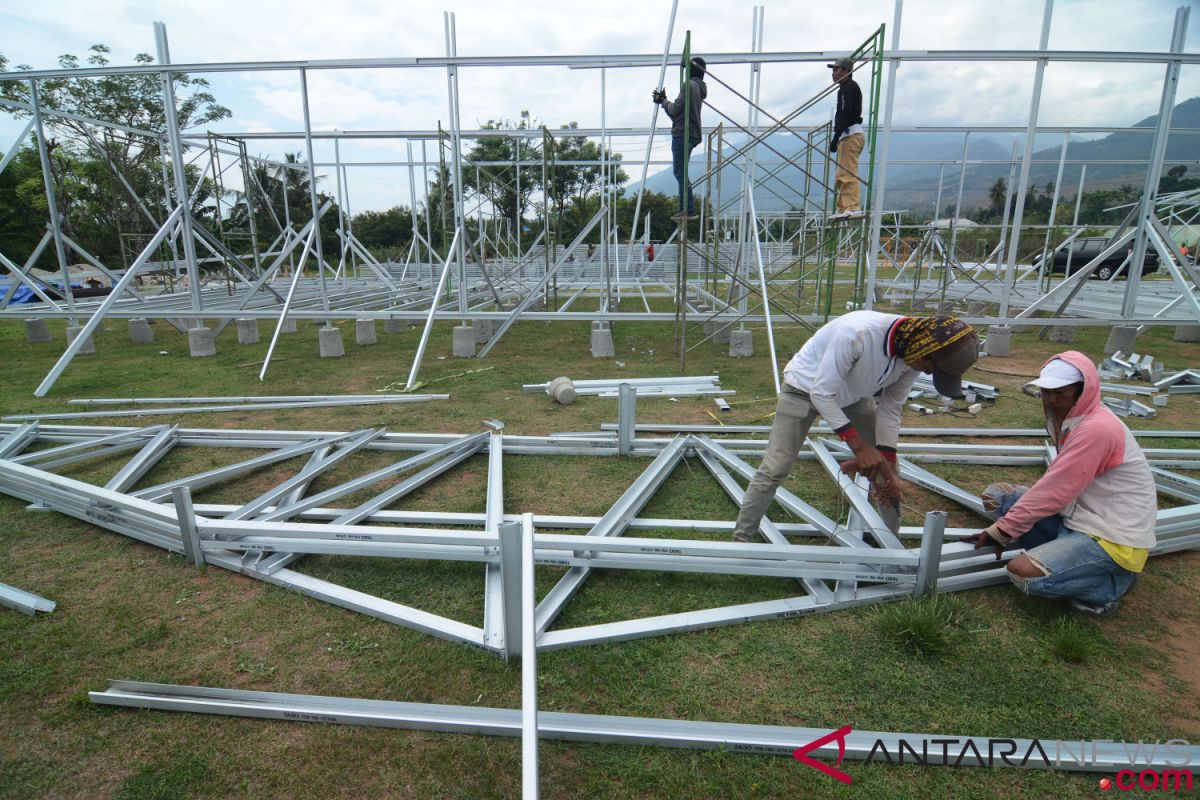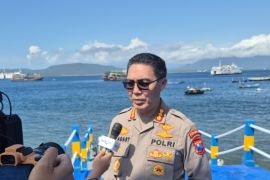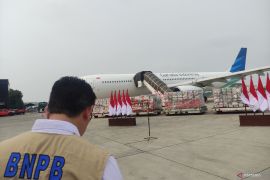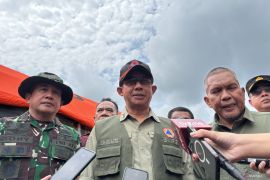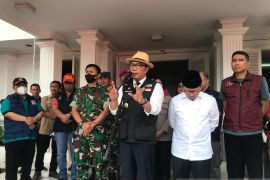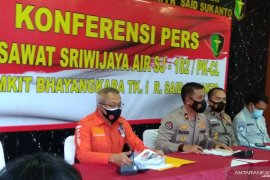Hence, the central and regional governments are immediately preparing locations to relocate communities that have lost their homes. The area needed for relocation is one thousand to 1,500 hectares (ha), with the calculation made for constructing 16 thousand permanent residential houses.
During a limited meeting at the Vice Presidential Office, Vice President Jusuf Kalla held a discussion with Central Sulawesi Governor Longki Djanggola on accelerated recovery efforts to handle the impacts of earthquake, tsunami, and liquefaction in Palu, Sigi, and Donggala.
The United Nations Food and Agriculture Organization (FAO) has also launched a recovery program to help more than 70 thousand Indonesian farmers and fishermen following the quake and tsunami natural disasters in Central Sulawesi.
The FAO program is aimed at providing assistance to the victims, who have lost their sources of income and livelihoods.
At the meeting with Vice President Kalla, Governor Djanggola conveyed that the construction of dwellings for relocation was still determined by the Palu mayor at two locations in the sub-districts of Talise and Tondo, covering 560 ha, and the Petobo Sub-District, around 100 ha.
The planned construction of permanent shelters for the re-location of the victims will start since January 2019 as well as rebuilding public and social facilities. The head of Sigi District has set aside a shelter location in the Pombewe Sub-District, with an area of 362 ha, the governor stated.
The governor reported that recovery and rebuilding of some 68 thousand severely damaged community homes were being undertaken, while some 70 thousand moderately damaged houses were still being built in their original locations, thereby not necessitating relocation.
He officially conveyed to the vice president the need to disburse stimulant funds to rebuild people`s houses.
The program mainly aims to help the victims return to their occupation of growing food crops and going fishing after a series of disasters destroyed their sources of income.
"Families in Central Sulawesi are highly dependent on agriculture and fisheries. For majority of the population, agriculture and fisheries are their source of food and income," Stephen Rudgard, the FAO representative in Indonesia, noted in a written statement in Pontianak, Tuesday.
Following the disaster, they have lost their livelihoods.
"They lost their crops and the means to plant, access food and seeds, and equipment to catch fish," Rudgard noted.
Over the next three months, the FAO program aims to reach 50 thousand farmers through the provision of vegetable seeds, fertilizers, and small hand tools, such as shovels and hoes. A total of 20 thousand fishermen will also receive equipment to catch fish.
The FAO targets farmers and fishermen in the areas most affected by disasters in Donggala, Sigi, Palu, and Parigi Moutong in Central Sulawesi Province.
The world agricultural organization has also prepared a cash assistance scheme for four thousand pregnant women and mothers with children under the age of five years, which enables them to access nutritious food.
Rudgard added that several people in Indonesia had experienced this earlier and were strong enough to rise again.
"However, the presence of the FAO is important to support the government`s efforts to help the people of Central Sulawesi rise quickly," Rudgard noted.
Through this assistance program, the Indonesian people can restore their food production as quickly as possible and avoid further hunger and suffering in future, according to Rudgard.
The FAO estimates the actual extent of damage to be higher than recorded. Until now, it is estimated that nearly 10 thousand ha of agricultural land have been destroyed, with rice and corn plants being the most affected.
The loss in vegetable production is also estimated to be quite high. In Sigi District, damage to the irrigation system has cut off water supply to more than eight thousand ha of agricultural land and cultivation areas.
Moreover, high risks of crop failure exist due to reduced agricultural workforce, loss of stored agricultural supplies, and limited access to seeds, fertilizers, equipment, and irrigation.
Some fisheries and aquaculture facilities, including fish hatcheries, landing sites, boats, and fishing equipment, have also been severely damaged.
More than 200 thousand people have been displaced and over three thousand people have lost their lives or are missing due to a series of disasters that hit Central Sulawesi.
For seven decades, the FAO has supported Indonesia with hundreds of programs to improve, stabilize, and increase the quality of food production and supply.
According to Indonesian Deputy Foreign Minister A. M. Fachir, Indonesia has already established close cooperation with the organization through several agricultural projects worth US$351 million.
"Due to the long-standing cooperation, I have requested that the projects applied in Indonesia can serve as a model for other countries as we, in fact, have forged several collaborations in building capacity in the field of food security," Fachir remarked while welcoming a FAO delegation in Jakarta late last month.
Editing by Sri Haryati
Reporter: Andi Abdussalam
Editor: Suharto
Copyright © ANTARA 2018
